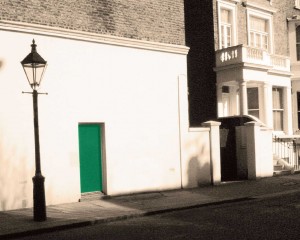Lesbians and gay men reflect on their lives and their place in society from the 1940s to the 1990s
 Gateway to Heaven by Clare Summerskill both the title of both a book (Gateway to Heaven: Fifty Years of Lesbian and Gay Oral History) containing oral histories excerpts from 46 LGBT narrators and also the title of the play (Gateway to Heaven – The Play) based on interviews with 24 older lesbians and gay men.
Gateway to Heaven by Clare Summerskill both the title of both a book (Gateway to Heaven: Fifty Years of Lesbian and Gay Oral History) containing oral histories excerpts from 46 LGBT narrators and also the title of the play (Gateway to Heaven – The Play) based on interviews with 24 older lesbians and gay men.
The book version, Gateway to Heaven: Fifty Years of Lesbian and Gay Oral History, contains excepts from interviews conducted with some of those who were at the forefront of the struggle for lesbian, bi, gay and trans equality in the UK, as well as others who led more private lives. Clare Summerskill first gathered these life stories while producing verbatim plays and films. They address central issues in British social and political history from the 1940s to the 1990s. This is a dramatic period for the lesbian and gay community. It begins in closets of fear – arrests and hidden basement bars – and emerges in courage with the first Pride marches and the repeal of anti-gay legislation.
As the contributors aged, their candid memories and hard-won wisdom were at risk of going unrecorded, but in Gateway to Heaven: Fifty Years of Lesbian and Gay Oral History, they are captured for everyone, from students of social and oral history or LGBTQ or queer studies to the general reader.
The Play
Gateway to Heaven was originally the name of a play, produced in 2006 and written by Clare Summerskill, from interviews with twenty-four older lesbians and gay men. It was staged at Oval House Theatre, where it had a three-week run, and then it toured to theatres around the UK. The play was directed by Kate Crutchley and performed by Clare and members of her own company, Artemis. Age Concern (now Age UK), saw the play and they commissioned a film version.
Queens’ Evidence
When the diversity department of the London Metropolitan Police saw the film version of Gateway to Heaven, together with Age Concern Opening Doors, they commissioned Clare to write a similar piece, based entirely on memories of older LGBT people about their relationships with the police over their lifetimes. The so-called ‘Hate Crime’ Bill of 2009 had just been introduced and The Met were interested in examining why there was such a low level of reporting of homophobic hate crime from older people in London. For that project, Clare interviewed a further twenty people and produced a film called Queens’ Evidence.
Staying Out Late
In 2011 Clare was involved in a theatre project called Staying Out Late, which, through improvised scenes and a scripted performance, looked at older LGBT people’s hopes and fears about care in later life, specifically with regard to their sexuality. For this project, Clare also interviewed some of the participants about their lives.
The Book
After creating these films and theatre work Clare then realised that there was an enormous amount of material from the interviews she had conducted that had still not been employed for any of the projects she had created, and she was aware that she held a vast amount of exciting and interesting stories that had still not seen the light of day. She asked several contributors to all those projects if they would be happy for those other interview extracts, alongside the previously used ones, to appear in a book, called Gateway to Heaven: Fifty Years of Oral History. This was published by Tollington Press in 2012. The script of Gateway to Heaven – The Play was later published in 2019.
The Title
The title of the book and the play refers to The Gateways, which was one of the most famous women’s bars, located in Kings Road, London, and featured in the film, The Killing of Sister George; and Heaven, which opened as a gay men’s nightclub in the 1980s and remains one of the largest and most popular gay dance venues in Europe. The picture above is of the entrance to The Gateways Club.